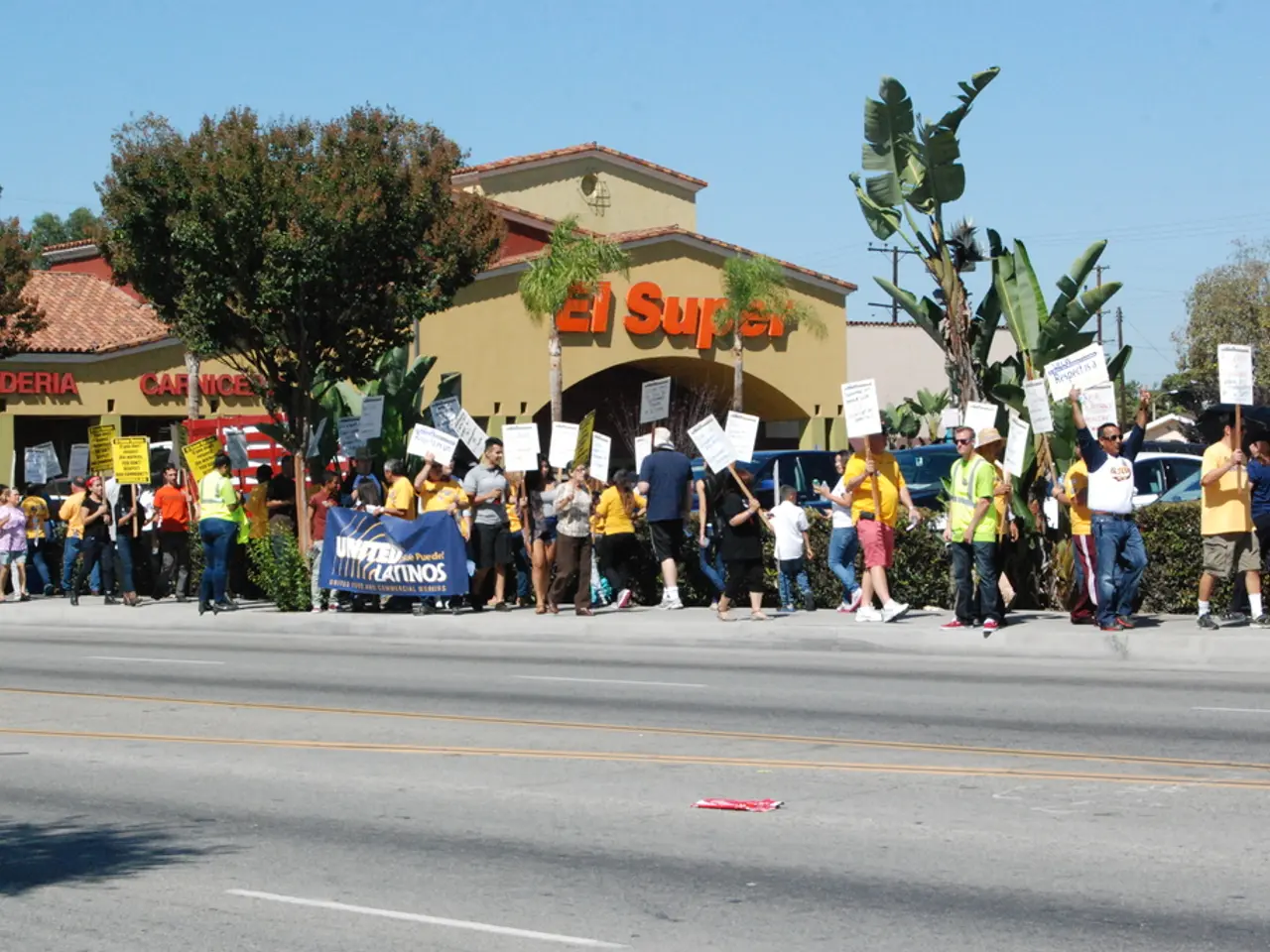Following the allegation of assault against a former DOGE member, Trump suggests federalizing Washington D.C. – but is such action legally possible for him?
In recent times, the question of federalizing Washington D.C. has been a topic of debate, with President Donald Trump expressing concerns about crime in the city and calling for the federal government to take control. However, the process of federalizing D.C. is a complex one, requiring the cooperation of Congress.
In March 2022, Congress overturned a major overhaul of D.C.'s criminal code with President Biden's help, demonstrating the significant role Congress plays in shaping D.C.'s policies. The constitutionally-granted "exclusive legislation" authority of Congress over D.C. as a federal enclave has historically been delegated to D.C.'s local government, allowing for home rule with some federal oversight.
President Trump has used his powers to influence local priorities, such as creating the "D.C. Safe and Beautiful Task Force." He has also invoked emergency powers to take temporary control of D.C.'s police and deploy the National Guard, as permitted by the Home Rule Act. However, making the change permanent or fully federalizing D.C.—in the sense of ending home rule, making it a federal territory or state under complete federal government control—would require an act of Congress.
Two Republicans, Sen. Mike Lee and Rep. Andy Ogles, introduced bills aimed at repealing D.C.'s home rule in February 2022. Yet, such a move would face significant opposition given that D.C. has overwhelmingly voted against Trump and considering the political dynamics, including Democrats controlling Congress in recent years.
The incident of Edward Coristine, a former staff member of the Department of Government Efficiency (DOGE), being injured in an attempted carjacking over the weekend, highlights the ongoing crime issues in D.C. Two suspects, both 15 years old, were arrested at the scene and charged with unarmed carjacking. This incident underscores the need for effective measures to address crime in the city, a concern that President Trump has consistently voiced.
In conclusion, while temporary federal control is possible and has been exercised, complete federalization of Washington D.C. is a complex process requiring Congress and is unlikely to be accomplished solely by presidential action during a second Trump term. The future of D.C.'s governance remains a subject of political discourse, with the balance between local autonomy and federal oversight continuing to be a critical issue.
[1] Congressional Research Service, "Federal Control of Washington, D.C.: A Historical Overview," January 27, 2021. [2] Congressional Research Service, "Federal Control of Washington, D.C.: Legal and Practical Considerations," January 27, 2021. [3] The Washington Post, "Trump takes control of D.C. police, ordering them to work with federal agents to quell protests," June 1, 2020. [4] The Washington Post, "Trump deploys National Guard to D.C., setting up clash with local leaders over police powers," June 2, 2020.
- In the realm of capital, the process of federalizing Washington D.C., a topic yet to receive congressional approval, involves substantial capital investments given its complex nature.
- The ongoing debate about federalizing D.C. is not solely based on crime statistics and politics, but also involves a robust discussion of risk management and leveraging resources effectively.
- Assets under management for D.C., if federalization were to occur, would be managed differently, with the city's assets now falling under local control, transitioning to federal control in a federalized state.
- For investors, the political position of federalizing D.C. could impact the returns on investments related to the city, as such a shift could bring about economic, social, and environmental changes, as future ESG concerns might.
- The incident involving Edward Coristine, a former staff member, underscores the need for effective crime prevention strategies, a matter of general-news interest and a concern given the politics surrounding D.C.'s governance.
- The proposed bills by Sen. Mike Lee and Rep. Andy Ogles to repeal D.C.'s home rule, if passed, would significantly change D.C.'s position as a federal enclave, potentially reshaping crime and justice within the city.






